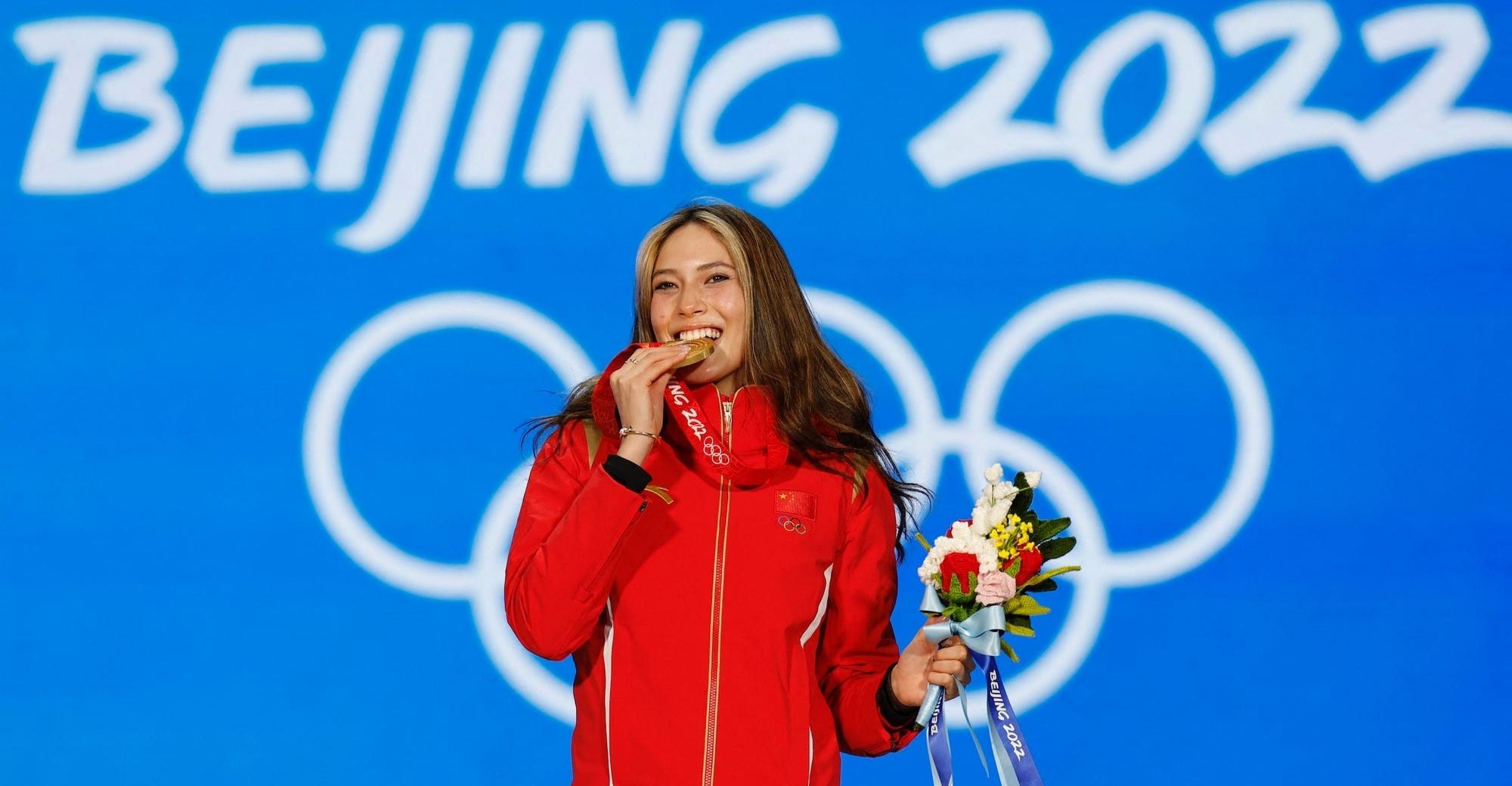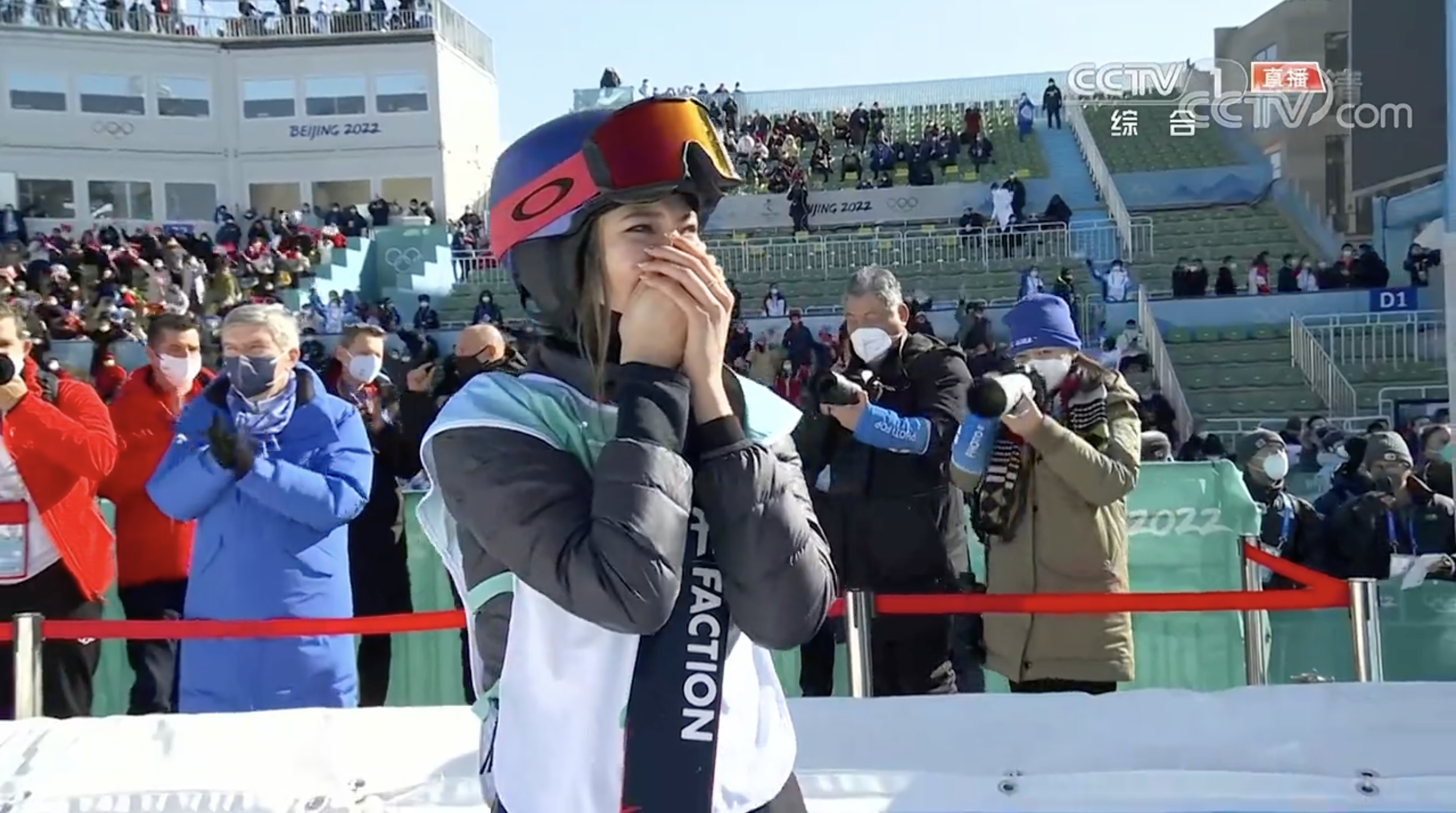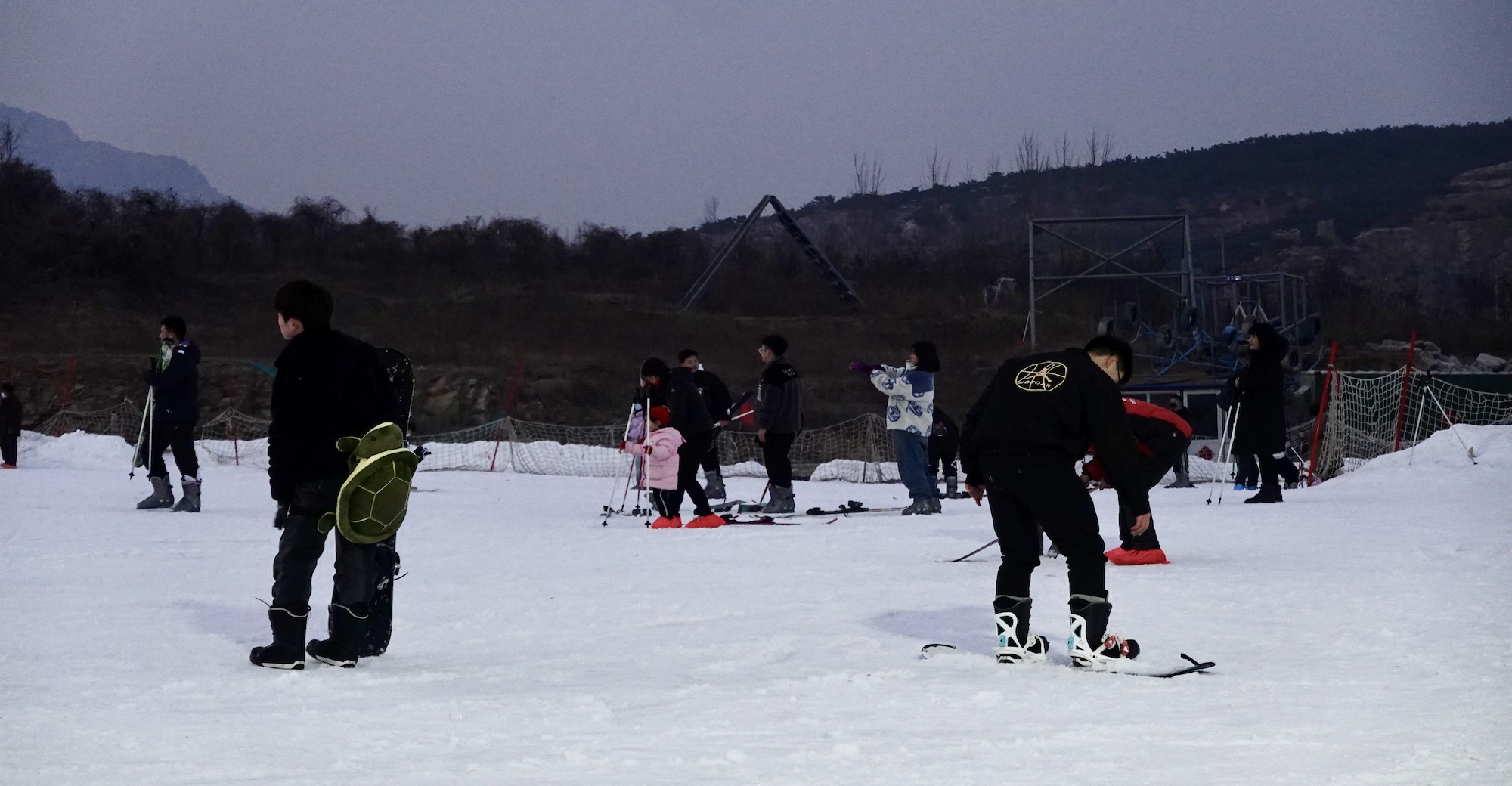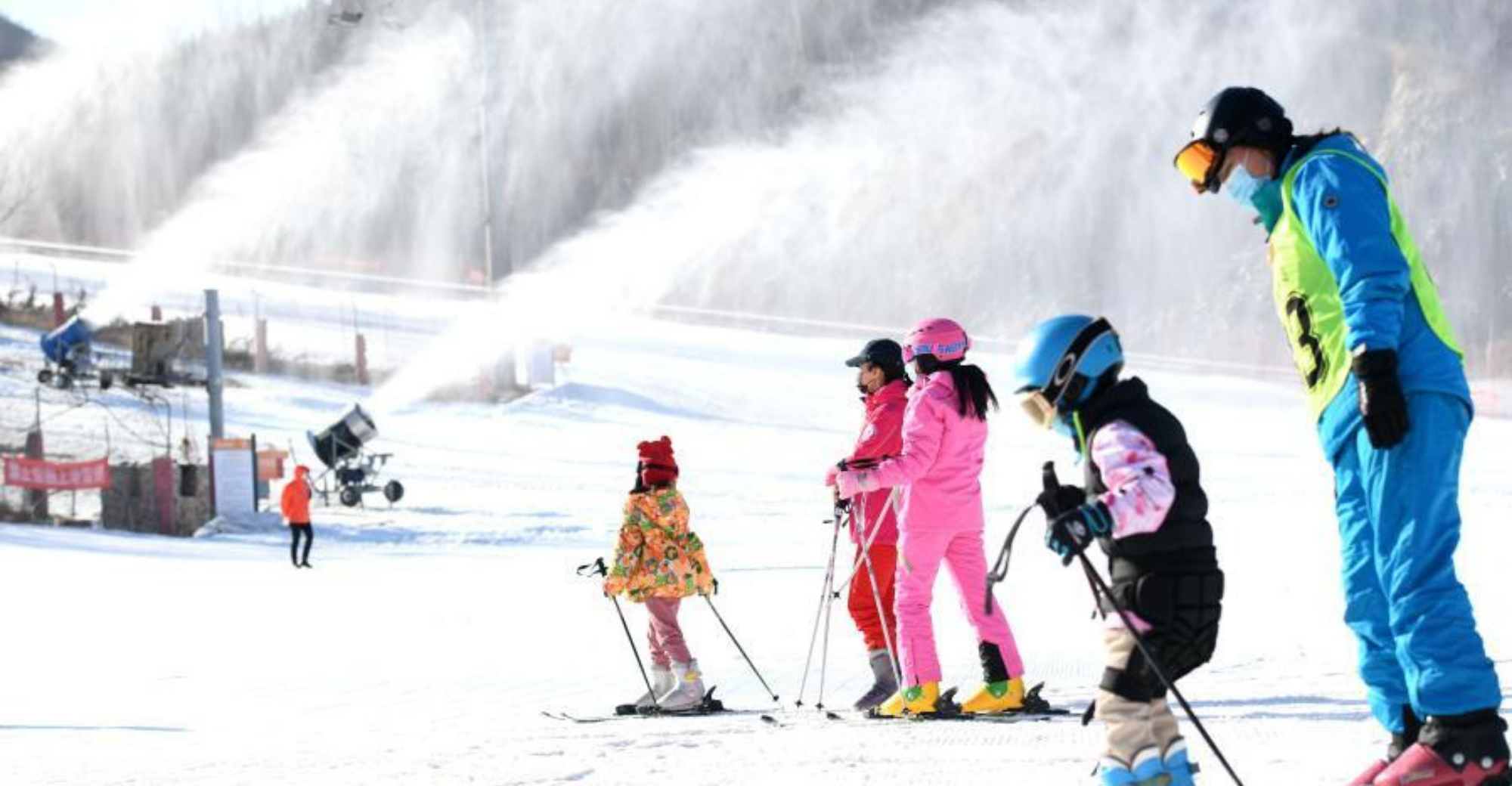Chinese Naturalized Olympians: Attaining Pride, Receiving Criticism and Carrying Hope
February 8, Beijing Shougang. When Ailing Eileen Gu landed her first-ever official attempt at a four-and-a-half-rotation trick and thereby won the gold medal, related hashtags were soon among the top trends. People not only discussed her athletic performance, but also tried to unveil how she was raised and educated, what her plan would be at Stanford University, and even what she was eating after her tricks.
Gu was not a nobody before this victory, even if freestyle skiing was not popular in China at all. Gu’s multiracial identity, fashionable look, status as an incoming Stanford student and fluency in Chinese with a Beijing accent have made her one of the most familiar faces across commercials in the country. Before the Winter Olympics, Gu’s main business sponsors spanned from luxury brand Estée Lauder to fast moving consumer goods firm Genki Forest, as well as financial services giants like the Bank of China, and more. Her face has been everywhere. “There are two screens for commercials in the elevator of my apartment. Gu was saying hello to another Gu when I was home,” someone posted on Weibo.
Gu is not the only naturalized athlete on Team China this time, and some of them received more criticism than compliments. Yi Zhu, who was born in Los Angeles, represented China to compete in Figure Skating Women’s Singles this time. Before moving to China, Zhu won the novice title in her U.S. Nationals debut at the 2018 U.S. Championships with a record score of 167.69 points. However, her performance did not meet people’s expectations due to multiple reasons, including injury, the pandemic, and other reasons. Many people doubted how Zhu was selected for the Olympics when she did not outperform another locally trained candidate Hongyi Chen in previous international games, especially when they found Zhu’s father is a world-class computer expert and professor at the currently leading Institute for Artificial Intelligence at Peking University, after moving back from UCLA, although there is no evidence of her father playing any role in Zhu’s qualification. The doubt reached the climax after she fell on her Olympic debut multiple times.
The reasons behind people’s different attitudes towards Zhu and Gu are complicated. Their different performance definitely contributed partially. However, it cannot explain everything. 19 of the 25 members of China’s Men’s Ice Hockey team were naturalized. Most of them cannot speak Chinese and they lost all of four games this time. However, no one blamed them. Instead, their Weibos were full of people’s appreciation, encouragement and compliments.

The biggest reason might be the “contrast.” It is hard to tell Gu’s Chinese descent from her face – however, her fluent Mandarin made everything different. Additionally, her love towards Chinese food and her experience of taking summer math courses in China also shortened her distance with Chinese local audiences, even if everyone knows she is mostly shaped by her American education the country’s broader cultural system. Comparatively, as the daughter of two first-generation Chinese immigrants, Zhu spoke broken Chinese when she moved back to China four years ago. Although her Chinese has reached a high fluency now, people were still questioning her because “if her parents and she loved China sincerely, her Chinese would not be broken like that.”
The contrast also comes from their performance compared to China’s performance in previous Olympics. Even if China has not had superstars in figure skating women’s singles for over two decades, China once won two Olympic bronze medals in this event. Comparatively, freestyle skiing? I guess most Chinese people did not even know what it was before Gu came to their attention. Similarly, China never qualified for Men’s Ice Hockey until this year and people had rock bottom expectations for their performance. Two goals in the game against Germany and two goals against Canada have brought enough surprise to Chinese fans.
Being confident and versatile is another reason why Gu is preferred. Gu is a very typical American teenager regarding her personal characteristics. She is confident, eloquent, straightforward and willing to praise herself. People might notice similar images from other American athletes, but those figures are still too far away. Gu, as a Chinese athlete and at least a nominally Chinese girl, threw a bomb to the crowd to awaken a subconsciousness of being recognized. What’s more, she has wide-ranging interests, straight-A high school grades and an offer from Stanford. Another athlete who shares a similar profile is Jiaying Zhou, the goalkeeper of the Chinese women’s ice hockey team. She has graduated from Princeton University and once worked on Wall Street, which brought her extra applause from Chinese fans. Gu and Zhou’s cases are special. This is a profile that had never been seen from a Chinese athlete before. In comparison, Zhu looks much softer. Her voice is also very soft and slow, no matter when speaking English or Chinese. “She does not look like an American-born girl at all,” one hot online comment said. It might sound contradictory that a Chinese athlete is criticized for being not Americanized, but what’s behind this is the increasing pursuit of self expression among younger Chinese generations.
SEE ALSO: Chinese Skier Eileen Gu Qualifies for Final in “Golden Dragon Coat”
Except for those characteristics-related reasons, people also consider Gu’s decision to compete for China as a symbol of the rise of the country on the global stage, given the fact that waves of migrants moving to the U.S. from China have been flowing for decades, while the reverse direction is still a rare case, especially for half-Chinese. Another example is from Zach Yuen, a member of China’s Men’s Ice Hockey. His Weibo post reading “I sincerely invited talents from different fields around the world to move back to China” also went trending. Many people expressed the same wish in their reposts and believed this year would mark a milestone of talent import to China.

Historically, China won its first ever Winter Olympics gold medal in 2002 and recorded its previous best Winter Olympics performance in Vancouver, with five gold medals, two silvers and four bronzes. Most medals came from ice sports, especially short track speed skating. The only medal in alpine, skiing and snowboarding events was from Han Xiaopeng, a freeskier who won a gold medal in Men’s Aerials back in 2006. It is fair to say the development of winter sports in China was extremely unbalanced.
After China was chosen to host the 2022 Winter Games, the country had been recruiting athletes with Chinese descent globally to represent China. The main purpose was to help China become more competitive in as many events as possible, especially those in which China had a poor foundation. A few years ago, the biggest reason why those naturalized athletes were willing to compete for China was pretty simple – sow seeds of those previously unheard-of sports and attract younger generations to participate, due to, in Gu’s words, “just a personal choice.” A few years later, now that the fire of anti-globalization is raging, those seemingly personal choices have become no more personal. The athletes are now facing a much more complicated condition, in which they need to be extra careful to soar over divisions without being smashed into pieces under all of those gazes. From this perspective, those athletes are now carrying a much heavier responsibility, whether consciously or unconsciously – they must become a symbol of bonding, to remind people there should be something beyond nationality and the power of integration. The motto of the Beijing Winter Olympics is “Together for a Shared Future,” and the mottos of two upcoming Olympics are “Come Share for Paris” and “Dreaming Together” for Milan-Cortina. All three mottos demonstrate one thing: being bonded and being together is still a globally shared hope that we should seriously prize.






